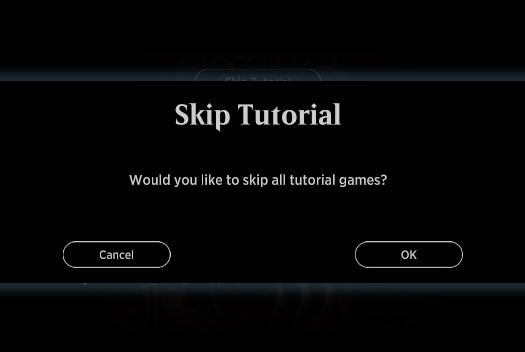Wise Enough to Learn
By Anthony Casperson
4-30-22
The person boots up a new video game. There’s the title sequence, then a loading screen, and maybe a character creator. But then the tutorial begins. Only in this game, they discover that you can opt out of that beginning part. So the player hits the skip button. After all, so many games have the same control scheme.
Why should they waste their time on something that won’t really help them in the slightest?
Playing for hours, they enjoy the game. However, some issue arises. They try to advance past some part of the story, but they can’t figure out how. Everything they try—every button pressing combination, every tactic, every power-up they can think of—ends in their defeat. The “stupid game” seems to not be working right.
The player looks up online to see if there are glitches or bugs for this part of the game, but only finds information about how easy that area is. And the discussion refers to doing something that the player doesn’t know how to do.
“Why didn’t the game teach me how to do that?” they later complain to one of their friends.
To which the friend replies, “Didn’t you play the tutorial? Because it was in there. Even some of the loading screens give a player tip explaining how to do that.”
And the player gets angry that the “ridiculous game” should’ve been clearer about those things.
Have you ever seen someone like this? Maybe been that person? You think you understand everything there is to know about something and certainly don’t need to “waste your time” going through early fundamental teachings, only to find out that there was something integral to success that you assumed you could intuit without the tutorial.
The issue here (I say this as someone whose been there too) is that we forgot how important it is to remain with a teachable attitude. It’s always for our betterment to be willing to learn, even if we are the most respected person in the field. There’s always something that we could be ignorant or wrong about.
And remaining teachable keeps us from the destructive consequences.
When we refuse to be willing to listen, or think we have everything covered without checking, it can lead to difficulty, anger, and a desire to quit. It can even lead to dangerous places, if the area where we refuse to remain teachable is of great importance to us or other people, like acting in line with the ways of God.
We could look to a lot of places in the bible to speak to the importance of teachableness. But there are a few places in the book of Proverbs that I believe will be sufficient to remind us of the value of remaining teachable. And the possible negative outcome of not.
The first we find in Proverbs 9:7-9. Here we see a juxtaposition of a fool who is unwilling to learn and a wise person who grows in their wisdom. The first is more than likely to abuse or hate the one correcting them. Blaming anyone other than themselves for the deficiency. However, the second type of person appreciates and loves those who instruct them. They understand the value of listening to others, even in topics where they already have some understanding.
We can see that the person who remains teachable isn’t the one yelling and screaming their rage at those who speak corrective words to them. Rather, the wise are the ones who listen and allow correction to take place without the need to fear some sense of inferiority while being shown correction.
Our second verse from Proverbs is found in chapter 12 verse 1. It tells us that those who have learned under a disciplining hand will continue to love the gaining of knowledge. A disciplined mind isn’t one that knows everything, but is always ready to learn.
On the other hand, the person who hates to be corrected proves themselves to be stupid. (Don’t blame me for that use of the word “stupid,” that’s directly from the ESV’s translation of Prov. 12:1.) Literally, the word used there for stupid means “to act like cattle.” If you’ve ever heard the saying “stubborn as an ox” you get what Solomon’s saying here.
When it comes to areas of knowledge and understanding, there are two options. The first is being disciplined and willing to listen, thankfully gathering in new information from the places where it can be found. And the second is to bullheadedly rush forward without regard to possible consequences.
And the final verse we’ll look at today is Prov. 29:1. This is a warning about those who refuse to be teachable. It says that when we repeatedly refuse to listen to the same correction—one that’s been repeatedly told to us—we shouldn’t be surprised when our stiffened neck breaks. The truth will break our obstinacy before it bends to our foolishness.
It’s better for us to remain teachable. To always be willing to learn. But there is one more warning that I would add for us today. And it is that we shouldn’t confuse teachableness for being tossed about by every new teaching that claims to be true.
Whenever new information is offered to us, we should compare it with the standard of truth we believe. For we followers of Jesus, it should be the inerrant word of God. And I don’t mean the cherry-picked verses taken out of context, but the entirety of the bible in its proper context. Then after examining the new teaching with that standard, we should take in whatever is good, true, and godly. Everything else should be left to the wayside.
So, let’s always be ready and willing to learn so that we might gain wisdom. And take in that which agrees with the word of God. Any other attitude will lead to us blaming everyone else except for the brutish ox that we are acting as.




